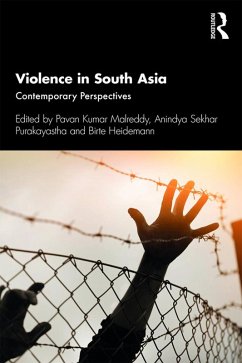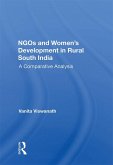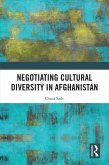Violence in South Asia (eBook, PDF)
Contemporary Perspectives
Redaktion: Kumar Malreddy, Pavan; Heidemann, Birte; Purakayastha, Anindya Sekhar
44,95 €
44,95 €
inkl. MwSt.
Sofort per Download lieferbar

22 °P sammeln
44,95 €
Als Download kaufen

44,95 €
inkl. MwSt.
Sofort per Download lieferbar

22 °P sammeln
Jetzt verschenken
Alle Infos zum eBook verschenken
44,95 €
inkl. MwSt.
Sofort per Download lieferbar
Alle Infos zum eBook verschenken

22 °P sammeln
Violence in South Asia (eBook, PDF)
Contemporary Perspectives
Redaktion: Kumar Malreddy, Pavan; Heidemann, Birte; Purakayastha, Anindya Sekhar
- Format: PDF
- Merkliste
- Auf die Merkliste
- Bewerten Bewerten
- Teilen
- Produkt teilen
- Produkterinnerung
- Produkterinnerung

Bitte loggen Sie sich zunächst in Ihr Kundenkonto ein oder registrieren Sie sich bei
bücher.de, um das eBook-Abo tolino select nutzen zu können.
Hier können Sie sich einloggen
Hier können Sie sich einloggen
Sie sind bereits eingeloggt. Klicken Sie auf 2. tolino select Abo, um fortzufahren.

Bitte loggen Sie sich zunächst in Ihr Kundenkonto ein oder registrieren Sie sich bei bücher.de, um das eBook-Abo tolino select nutzen zu können.
This volume explores new perspectives on contemporary forms of violence in South Asia. It examines the infiltration of violence at the societal level and affords a comparative regional analysis of its historical, cultural and geopolitical origins in South Asia.
- Geräte: PC
- mit Kopierschutz
- eBook Hilfe
Andere Kunden interessierten sich auch für
![Ngos And Women's Development In Rural South India (eBook, PDF) Ngos And Women's Development In Rural South India (eBook, PDF)]() Vanita ViswanathNgos And Women's Development In Rural South India (eBook, PDF)42,95 €
Vanita ViswanathNgos And Women's Development In Rural South India (eBook, PDF)42,95 €![China's Communication of the Belt and Road Initiative (eBook, PDF) China's Communication of the Belt and Road Initiative (eBook, PDF)]() Carolijn van NoortChina's Communication of the Belt and Road Initiative (eBook, PDF)44,95 €
Carolijn van NoortChina's Communication of the Belt and Road Initiative (eBook, PDF)44,95 €![Social Theories of Urban Violence in the Global South (eBook, PDF) Social Theories of Urban Violence in the Global South (eBook, PDF)]() Social Theories of Urban Violence in the Global South (eBook, PDF)43,95 €
Social Theories of Urban Violence in the Global South (eBook, PDF)43,95 €![Negotiating Cultural Diversity in Afghanistan (eBook, PDF) Negotiating Cultural Diversity in Afghanistan (eBook, PDF)]() Omar SadrNegotiating Cultural Diversity in Afghanistan (eBook, PDF)42,95 €
Omar SadrNegotiating Cultural Diversity in Afghanistan (eBook, PDF)42,95 €![Geo-economics and Geo-securities in the Indian Ocean Region (eBook, PDF) Geo-economics and Geo-securities in the Indian Ocean Region (eBook, PDF)]() Geo-economics and Geo-securities in the Indian Ocean Region (eBook, PDF)46,95 €
Geo-economics and Geo-securities in the Indian Ocean Region (eBook, PDF)46,95 €![China's Western Frontier and Eurasia (eBook, PDF) China's Western Frontier and Eurasia (eBook, PDF)]() Zenel GarciaChina's Western Frontier and Eurasia (eBook, PDF)43,95 €
Zenel GarciaChina's Western Frontier and Eurasia (eBook, PDF)43,95 €![Asia and Europe in the 21st Century (eBook, PDF) Asia and Europe in the 21st Century (eBook, PDF)]() Asia and Europe in the 21st Century (eBook, PDF)39,95 €
Asia and Europe in the 21st Century (eBook, PDF)39,95 €-
-
-
This volume explores new perspectives on contemporary forms of violence in South Asia. It examines the infiltration of violence at the societal level and affords a comparative regional analysis of its historical, cultural and geopolitical origins in South Asia.
Dieser Download kann aus rechtlichen Gründen nur mit Rechnungsadresse in A, B, BG, CY, CZ, D, DK, EW, E, FIN, F, GR, HR, H, IRL, I, LT, L, LR, M, NL, PL, P, R, S, SLO, SK ausgeliefert werden.
Produktdetails
- Produktdetails
- Verlag: Taylor & Francis eBooks
- Seitenzahl: 258
- Erscheinungstermin: 6. November 2019
- Englisch
- ISBN-13: 9781000733020
- Artikelnr.: 58099963
- Verlag: Taylor & Francis eBooks
- Seitenzahl: 258
- Erscheinungstermin: 6. November 2019
- Englisch
- ISBN-13: 9781000733020
- Artikelnr.: 58099963
- Herstellerkennzeichnung Die Herstellerinformationen sind derzeit nicht verfügbar.
Pavan Kumar Malreddy is researcher in English literature at Goethe University Frankfurt, Germany. He previously taught at the University of Saskatchewan, Canada, and TU Chemnitz, Germany. His publications include Orientalism, Terrorism, Indigenism (2015) and the co-edited collection Reworking Postcolonialism (2015). He has co-edited special issues with the Journal of Postcolonial Writing (2012; 2020), ZAA: Journal of English and American Studies (2014), Kairos and the European Journal of English Studies (2018), and has authored essays on terrorism, political violence and postcolonial theory in The European Legacy, Third World Quarterly, Journal of Postcolonial Writing and Intertexts, among others. Anindya Sekhar Purakayastha is Professor at the Department of English, Kazi Nazrul University, India. He was Fulbright Nehru Fellow 2018-19 at the University of Massachusetts, Amherst. His research focuses on postcolonial governmentality, citizenship rights, political violence and the Anthropocene. His work appeared in International Journal of Zizek Studies, Parallax, Journal of Postcolonial Writing, History and Sociology of South Asia, Postcolonial Studies, Transnational Literature and Economic and Political Weekly, among others. He is co-editor of Kairos: A Journal of Critical Symposium and is one of the founding members of the Postcolonial Studies Association of the Global South (PSAGS). Birte Heidemann is Assistant Professor in English literature at Dresden University of Technology, Germany. She previously held appointments at TU Chemnitz and University of Bremen, Germany. Her research interests include postcolonial theory, and literary and cultural expressions of post-conflict societies. She is the author of Post-Agreement Northern Irish Literature (2016) and co-editor of From Popular Goethe to Global Pop (2013), Reworking Postcolonialism (2015) and two special editions of the Journal of Postcolonial Writing. Her work has appeared in The Journal of Commonwealth Literature, Wasafiri and Postcolonial Text, among others.
List of contributors. Acknowledgements. 1. Introduction: genealogies of
violence in South Asia. Part I: Structural violence: ideologies,
hierarchies and symbolic acts 2. Neither war nor peace: political order and
post-conflict violence in Nepal. 3. Caste violence: free speech or
atrocity? 4. The representational burden of ethno-nationalist violence in
Sri Lanka. 5. Mapping extraordinary measures: militarisation and political
resistance in Kashmir. Part II: Gendered violence: rape, misogyny and
feminist discourse 6. Sex, rape, representation: cultures of sexual
violence in contemporary India. 7. Biographies of violence and the violence
of biographies: writing about rape in Pakistan. 8. Violence in public
spaces: security and agency of women in West Bengal. Part III: Outsourced
violence: mobs, insurgents and private armies 9. Violence and perilous
trans-borderal journeys: the Rohingyas as the nowhere-nation precariat.
10. India's lynchings: ordinary crimes, rough justice or command hate
crimes? 11. Violence, neoliberal state and the dispossession of adivasis
in Central India. Part IV: Cultures of violence: fractured histories,
fissured communities 12. Afghanistan: military occupation, violence and
ethnocracy. 13. Social roots of insurgency in Kashmir. 14. Islamist attacks
against secular bloggers in Bangladesh. 15. Democratic voice and the
paradox of Nepal bandhas. Index.
violence in South Asia. Part I: Structural violence: ideologies,
hierarchies and symbolic acts 2. Neither war nor peace: political order and
post-conflict violence in Nepal. 3. Caste violence: free speech or
atrocity? 4. The representational burden of ethno-nationalist violence in
Sri Lanka. 5. Mapping extraordinary measures: militarisation and political
resistance in Kashmir. Part II: Gendered violence: rape, misogyny and
feminist discourse 6. Sex, rape, representation: cultures of sexual
violence in contemporary India. 7. Biographies of violence and the violence
of biographies: writing about rape in Pakistan. 8. Violence in public
spaces: security and agency of women in West Bengal. Part III: Outsourced
violence: mobs, insurgents and private armies 9. Violence and perilous
trans-borderal journeys: the Rohingyas as the nowhere-nation precariat.
10. India's lynchings: ordinary crimes, rough justice or command hate
crimes? 11. Violence, neoliberal state and the dispossession of adivasis
in Central India. Part IV: Cultures of violence: fractured histories,
fissured communities 12. Afghanistan: military occupation, violence and
ethnocracy. 13. Social roots of insurgency in Kashmir. 14. Islamist attacks
against secular bloggers in Bangladesh. 15. Democratic voice and the
paradox of Nepal bandhas. Index.
List of contributors. Acknowledgements. 1. Introduction: genealogies of
violence in South Asia. Part I: Structural violence: ideologies,
hierarchies and symbolic acts 2. Neither war nor peace: political order and
post-conflict violence in Nepal. 3. Caste violence: free speech or
atrocity? 4. The representational burden of ethno-nationalist violence in
Sri Lanka. 5. Mapping extraordinary measures: militarisation and political
resistance in Kashmir. Part II: Gendered violence: rape, misogyny and
feminist discourse 6. Sex, rape, representation: cultures of sexual
violence in contemporary India. 7. Biographies of violence and the violence
of biographies: writing about rape in Pakistan. 8. Violence in public
spaces: security and agency of women in West Bengal. Part III: Outsourced
violence: mobs, insurgents and private armies 9. Violence and perilous
trans-borderal journeys: the Rohingyas as the nowhere-nation precariat.
10. India's lynchings: ordinary crimes, rough justice or command hate
crimes? 11. Violence, neoliberal state and the dispossession of adivasis
in Central India. Part IV: Cultures of violence: fractured histories,
fissured communities 12. Afghanistan: military occupation, violence and
ethnocracy. 13. Social roots of insurgency in Kashmir. 14. Islamist attacks
against secular bloggers in Bangladesh. 15. Democratic voice and the
paradox of Nepal bandhas. Index.
violence in South Asia. Part I: Structural violence: ideologies,
hierarchies and symbolic acts 2. Neither war nor peace: political order and
post-conflict violence in Nepal. 3. Caste violence: free speech or
atrocity? 4. The representational burden of ethno-nationalist violence in
Sri Lanka. 5. Mapping extraordinary measures: militarisation and political
resistance in Kashmir. Part II: Gendered violence: rape, misogyny and
feminist discourse 6. Sex, rape, representation: cultures of sexual
violence in contemporary India. 7. Biographies of violence and the violence
of biographies: writing about rape in Pakistan. 8. Violence in public
spaces: security and agency of women in West Bengal. Part III: Outsourced
violence: mobs, insurgents and private armies 9. Violence and perilous
trans-borderal journeys: the Rohingyas as the nowhere-nation precariat.
10. India's lynchings: ordinary crimes, rough justice or command hate
crimes? 11. Violence, neoliberal state and the dispossession of adivasis
in Central India. Part IV: Cultures of violence: fractured histories,
fissured communities 12. Afghanistan: military occupation, violence and
ethnocracy. 13. Social roots of insurgency in Kashmir. 14. Islamist attacks
against secular bloggers in Bangladesh. 15. Democratic voice and the
paradox of Nepal bandhas. Index.







